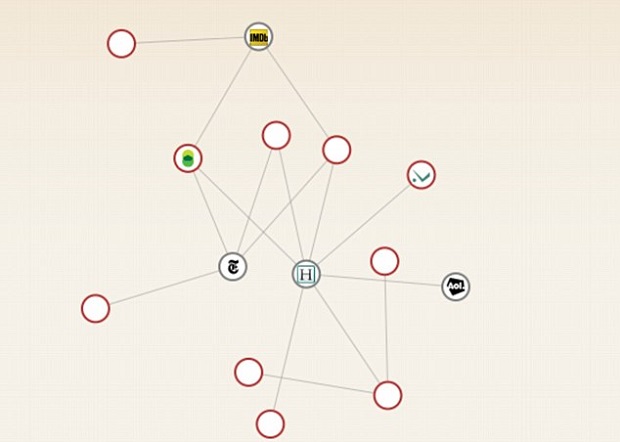
Written by: TechAnon
Privacy. What do you think that word should mean? One of the most descriptive definitions from the wide world of Webster is:
“freedom from damaging publicity, public scrutiny, secret surveillance, or unauthorized disclosure of one’s personal data or information, as by a government, corporation, or individual”.
It’s far more than being able to walk around without clothing in the comfort of your own dwelling. At least it’s supposed to be. Exit 1950 and enter 2014 with new and improved privacy! There is absotively no reason to fret over any of it ever again! Why you ask? Because you have none and most people don’t even realize it. Anyone or any company with enough funds and intelligence can follow you, your actions and your shopping habits as they see fit. Most big companies even have YOUR permission to do it! It’s called their “privacy policy” and “terms of use”. It’s part of that long list of paragraphs, subsections, blurbs and itemized silliness that you are required to either sign or click on in order to be allowed to use their service. No clicky, no usey.
Let’s look at the giantacular Google once again. In March of 2014 they updated their policies. This is the short version that you agreed to (taken right from Google’s page):
“Information you give us. For example, many of our services require you to sign up for a Google Account. When you do, we’ll ask for personal information, like your name, email address, telephone number or credit card. If you want to take full advantage of the sharing features we offer, we might also ask you to create a publicly visible Google Profile, which may include your name and photo.
We may collect information about the services that you use and how you use them, like when you visit a website that uses our advertising services or you view and interact with our ads and content. This information includes:
Device information
Log information
details of how you used our service, such as your search queries.
telephony log information like your phone number, calling-party number, forwarding numbers, time and date of calls, duration of calls, SMS routing information and types of calls.
Internet protocol address.
device event information such as crashes, system activity, hardware settings, browser type, browser language, the date and time of your request and referral URL.
cookies that may uniquely identify your browser or your Google Account.
Location information
Unique application numbers
Local storage
Cookies and anonymous identifiers “**
Yup, you just gave it all away in detail for the sake of convenience.
 Watching the watchers: A demonstration of Collusion’s ‘real time’ view of advertisers watching – as web users browse popular sites such as IMDB (one of the grey dots), their movements are tracked by unwanted third party advertisers (the red dots)
Watching the watchers: A demonstration of Collusion’s ‘real time’ view of advertisers watching – as web users browse popular sites such as IMDB (one of the grey dots), their movements are tracked by unwanted third party advertisers (the red dots)
Should you decide that you do not agree to this deal, you will not be allowed to use their services. The same things occur for just about every piece of software, smart phone, dumb phone, tablet or online coffee ordering website. Companies you’ve never heard of are watching you, tracking you and trying to predict what you’ll buy and how to get you to buy even more.
Now, you just may be one of those members of our anonymous population that has enough knowledge and currency to afford high end encryption and protection protocols. You may be reading this article and concentrating on what you think are spelling errors as opposed to the idea behind the words. I will only say… remember, there is always someone smarter than you are. Look at all the pictures of naked celebrities (that thought they were safe) that popped up. Someone was able to track and hack. Bye bye privacy.
What can we do? IS there anything we can do? Not when you give your permission to these money hounds.
Enter Mozilla, creator of Firefox. No, they didn’t figure out a way to stop the abuse. They DID decipher how to pull back the curtain so you can see who is watching you…all by yourself. The original project and beta version was called “Collusion” and was started in 2011 as an add-on to Firefox. Originally developed as a personal project by Mozilla engineer Atul Varma*** It tracks the trackers. It finds and follows companies that are finding and using your data via cookies and other tidbits. Since 2011, with the support of the Ford Foundation and the Natural Sciences and Engineering Research Council (NSERC) “Collusion” has been twisted, turned, tweaked (not twerked) and re-imagined into “Lightbeam” and was officially released in the fall of 2013 for Firefox users. The system uses a clock, a list and a graph to “shine a light” where you travel in your browsing. It tracks when a third party asks for your information, plants a tracking cookie and more. You can actually watch as a spider web type of graph is built in real time while your browse. In many cases you can even look up a site, see what other sites are connected to them and drill in for more information. There is even a way to block sites that you don’t want sniffing around your browser. All the details are free to read right from the link below****
You now have a tool to fight back with. The only catch so far is you need to be using Firefox of course. Will this make the tracking companies and marketers shake in their boots? Probably not. Will it stop them from trying to sniff around your world uninvited? Never. What Mozilla has done is give you a tool to help protect you and yours. If enough people use it and enough money is lost; It’ll definitely leave a cherry-red mark on the arse of the giant(s).
Thank you Mr. Varma for thinking outside the box and to Mozilla for putting the idea to good use.
Links: Protect your PC and mobile devices from hackers & governments and surf anonymously
______________________________________________________________________________________________________
Sources:
**http://www.google.com/policies/privacy/
****https://www.mozilla.org/en-US/lightbeam/about/





A must read !
This is great! Back in the day, you just needed a username and password. Nowadays, it’s getting closer to requiring a full-body scan. Those were the days when a cookie was to keep you logged in and a username was to simply have a memorable and consistent identification.
In addition to this, I still want to see the “show me all of the information you have on me button and unless it’s public (also non-government*) property, allow me to remove it” become a standard, which brings to me another idea…
…[begin tangential topic] — that autonomous content delivery systems (like search engines) are public domain and have no exclusive ruling entity. The primary reason this is considered not true, I think, is because of the ability to identify a body with every statement, potentially leaving people in danger**. However, we must prepare ourselves for fully autonomous content delivery systems that travel the internet and internet-connected society, delivering content that no one person or company can dictate (of course, the need always precludes the solution, so until there’s demand or until its sophistication induces demand, we have some time).
*Technically nothing belongs to a government that does not belong to the people it’s intended to govern, but the independent development of governor and governed cause this to change.
**We also have to wonder why people must fear another. For one, some things can’t be unseen, like an embarrassing photograph, even if the witnesses are willing. Secondly, there are shits pooping around, leaving people to dance around the defecation, hoping to not touch it or let it touch them.
This site brings up Google-Analytics.com via Lightbeam.
Good work Mozilla!
Who cares, first of all this is old news. Second, the easy way to protect yourself is not by using that plugin or whatever it is, it’s just don’t click ads, EVER! You figure out what you want to buy, search for where you can get it the cheapest possible and buy it from there. Never listen to marketing, never look at an ad and think “oh, that looks cool”, just ignore them. The main rule is, if they have to advertise it it’s not worth buying. Think about it, you already know what you want, don’t let other people tell you what you want. And this site is being a bit hypocritical, because you just tried to make me leave my e-mail with you for no freaking reason, and this site is full of ads targeted at me. I know they are because they’re not in english so the just used my IP to find out where I’m from. And don’t give me, thats just the cost of running the webserver, because I run a webserver, a damn good one and I pay for it all out of my own pocket. And anon are all volunteers, and when they start wanting money for being anon then they lose the right to call themselves that. This paranoia is getting stupid, what do you really have to hide that such a big deal anyway? Unless you’re a hacker who runs malicious code or write the exact kinda bots that are tracking you that you’re so worried about, there is really no need to hide your tracks. So, you watched some kinky porn, everybody does, don’t worry about it.
True…. Very true.
well what if you have managed to piss off a politician or some cop or government agency? I think that is where the fear is based…not what you are whacking off to…be serious.
It doesn’t matter if you click or not…. you don’t even need to purchase anything from the net…all you need do is ‘surf” and you are being tracked
you are very correct…. this article is crappy truth. the real truth is left unknown. Google secretly purchased Mozilla the Hero and the Vaillian are both played by the same party
If the purchase was secret how the hell do you know about it?
Perhaps s/he owns the “deluxe” tin-foil hat…
Ghostery is an extension for Chrome that can show you and block all of these tracking processes happening while you browse it’s quite shocking to see the amount of stuff there actually is following your every move even when you are not clicking on ad’s
It’s for Firefox too.
That’s why my basic police is to use nothing from Google.
“If the service is free, the product is you.”
I think people that are concerned about being tracked if they have managed to piss off a government agency or a politician…I mean that makes more sense.